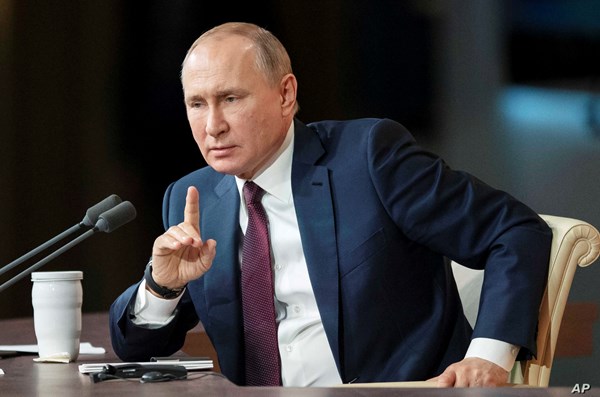Western media: Ukrainian Forces' bold incursion into Russia's Kursk region shakes Putin's strongman image
The Ukrainian military has launched a successful strike into Russia's Kursk region, casting a shadow over President Vladimir Putin's image as a strong leader ensuring national security. This daring move by Ukrainian forces has heightened Western media's critical narrative, with some outlets mockingly labeling Russia a "superpower" that can't fully control its own borders. Swiss newspaper columnist Andreas Rüesch, writing for the Swiss newspaper NZZ, stated that Ukraine's offensive in the Kursk region poses both a military and political challenge to the Kremlin.
Russian security forces are struggling to mount an effective response to the surprise Ukrainian attack, marking the first time regular Ukrainian army units have engaged on Russian soil. The Ukrainian advance not only undermines Moscow's military prowess but also disrupts the narrative that Putin provides unwavering national security.
Official data indicates that 76,000 residents have been displaced from the danger zone, though actual numbers may be higher. Scenes of despair and anger emerged during the evacuation, but no widespread domestic discontent is visible yet. The political sensitivity around young conscripts, previously promised to be kept off the frontline, has intensified as some have already been captured, as shown in interrogation videos. The Kremlin is likely to preemptively suppress any criticism from soldiers' mothers.
The Russian government has tightened control in typical crisis fashion, with encrypted messaging app Signal being blocked and access to YouTube restricted. Meanwhile, the Russian Ministry of Defense touted the defense of three villages located 20 to 28 kilometers from the border as success stories. This, however, signals that Ukrainian forces have penetrated much deeper into Russian territory than initially thought.
This situation is increasingly embarrassing for Russian Chief of General Staff Valery Gerasimov, who reassured Putin on state television that Ukrainian forces were halted. Yet, evidence shows Ukrainian military presence over approximately 500 square kilometers of Russian territory.
In some villages, Ukrainian troops even raised their flags on public buildings over the weekend, with ongoing fights around Sudzha. Ukrainian military leadership now faces three strategic choices: bringing in reinforcements to continue their advance, fortifying their positions, or retreating when faced with overwhelming Russian forces. President Volodymyr Zelensky offered a glimpse into his strategy this weekend, endorsing the Kursk offensive and expressing intent to extend the war onto Russian soil. Notably, the Ukrainians have captured numerous prisoners, including about 50 Russian soldiers and Chechen special forces from the "Akhmat" unit.
The complex Russian command structure may have contributed to the disarray. Politically, Putin has refrained from declaring war, instead labeling it a "counter-terrorist operation" led by the National Counterterrorism Committee and FSB chief Alexander Bortnikov. Coordination between FSB border troops, the National Guard, and army units remains a challenge.
The current situation, albeit grave, is not as paralyzing as the June 2023 Wagner PMC uprising. However, troop redeployment to the Kursk region has been sluggish, with setbacks such as the destruction of a convoy of fourteen military trucks by Ukrainian strikes.
Over the weekend, influential Ukrainian military blogger "Mikolaiv Vanyok" shared details of Russian units repositioned from frontline duties in Ukraine to the Kursk region. If accurate, this indicates Moscow's strategic reserves, particularly from secondary fronts like southern Ukraine, are being diverted, while trying to maintain strength on critical fronts in the Donbas, such as around Pokrovsk.
